Apollo Neuro review: wearable mood management at a price
Apollo Neuro
4.0 / 5Last updated
Apollo Neuro is a wearable that may vibrate you into calmer or more energized states, but its steep price tag may limit its reach.
Apollo Neuro is an oddball device— it's a wearable that doesn't track your steps, check your heart rate, or bug you with notifications. Instead, the company behind it promises "real-time stress control for better sleep, focus, energy, calm, and more" through haptic touch.
Compounding this quirky product is the fact that mood-hacking is an area ripe for a placebo effect. An entirely objective review — if such a thing is possible with any product — certainly isn't with this one. What we can do, though, is use it for a while, convey our experience, and present you with enough information to decide for yourself whether Apollo Neuro is worth the steep $349 asking price.
My experience with the device, while short of profoundly life-changing, has still been quite positive. The "Energy and Wake Up" program's staccato rhythms give me a nice boost to start my day when waking up. When I'm feeling anxious or too worked up over something, "Relax and Unwind" helps me chill out, and the "Clarity and Focus" mode is great for calm and concentrated work activities.
Apollo Neuro: Background
You'd be forgiven for thinking the product's basis is a bit on the "woo-woo" side. While we always recommend applying skepticism to marketing claims, the Apollo team didn't skimp on research, as the product's origins lie in academia.
Co-founder and co-inventor Dr. David Rabin is a board-certified psychiatrist and neuroscientist who developed the device while studying at the University of Pittsburgh Medical Center. Before launching Apollo, he and his partners had spent five years testing its foundations and honing it based on feedback. Apollo's website includes links to the company's clinical research and papers from others related to how touch can be a gateway to the sympathetic (fight-or-flight) or parasympathetic (calm and composed) nervous system.
You can also look at it from a simpler point of view:
- Petting your dog or stroking your cat makes you feel better.
- A mother's soothing touch comforts a child.
- A massage can help you let go of the day's stresses.
- Athletes lock arms in a huddle, slap hands, and smack each others' butts to build camaraderie and get pumped for the game.
- Lovers touch each other in all sorts of "mood-enhancing" ways.
Touch is an integral part of the human condition. We're a social species, and we have been since our ancestors were hunting and gathering in the African savannas. Maybe the brain's hardwired response to social touch can also extend into the realm of digital haptics.
We view Apollo's effects like the way listening to music can affect your mood. A laid-back jazz album can help you unwind, Eminem's "Lose Yourself" could pump you up for a high-pressure presentation, or a minimal-electronic playlist could help you dig in, get in the zone, and finish writing that paper. All sound is vibration, and while we don't interpret Apollo's vibrations as music, perhaps it can affect how we feel nonetheless.
What is Apollo Neuro?
You won't want to buy Apollo Neuro as a fashion product. It's a relatively thick device with a strap running through it. It ships with two different bands: one for your wrist and another for your ankle. They're made of a stretchable "neoprene material with polyester overlays." We find it comfortable, and you can adjust the band to fit.
Its appearance, while not exactly sexy, isn't an eyesore either. If you don't like its looks, it's easy enough to hide under a sleeve, sock, or pant leg. Just know that if anyone spots it on your ankle, they may mistake you for a parolee.
The device doesn't have a screen, but it does include two side buttons that raise or lower the vibrations' intensity. You can also push both buttons at once to pause or resume your last session.
To set up Apollo, install the companion iPhone app, which will walk you through automatic Bluetooth pairing. After showing you some basic instructions, it then lets you pick your mood program, including time and strength.
The seven modes include:
- Energy and Wake Up
- Social and Open
- Clear and Focused
- Rebuild and Recover
- Meditation and Mindfulness
- Relax and Unwind
- Sleep and Renew
It has high-quality haptics. It doesn't feel quite as sophisticated as the Apple Watch's Taptic Engine, but it's much closer to that than the cheap, monotone, and buzzy vibrations you'll feel from early phones and smartwatches. Similar to Apple's, you'll feel a wide variety of subtle gradations in the haptics: pulsing, jabbing, gentle vibrating, and so on. It's much more than "buzz on, buzz off."
Another nice bonus: Unless you lift your wrist right up to your ear, the vibrations are silent and won't disturb you or anyone around you.
As you might expect, the stimulating modes include shorter and sharper beats, while the calming modes are gentler and more sustained. Each mood program cycles through various stages, so it isn't repeating the same pattern for the entire duration.
Battery life is good. I logged at least six hours of active use per day at 60% intensity, and it rarely finished the day with less than 50% remaining battery. Apollo conserves its battery by only connecting to your phone when you launch the app. Unfortunately, that leads to a seven-second delay every time you open the app, which is a minor annoyance.
Does Apollo Neuro work?
For the most part, I felt like Apollo Neuro did what it claimed it would. Its effects aren't overly dramatic, but I feel like the calming modes help me relax, and the stimulating ones help me wake up and focus. It isn't going to change your life radically, but in conjunction with other approaches like meditation and exercise, we can see Apollo being a useful ally for some people.
With that said, some of Apollo's mode descriptions are almost too precise. For example, the "Rebuild and Recover" description says it "accelerates your body's recovery after a workout." The "Meditation and Mindfulness" mode claims to "prepare you for meditation by facilitating the connection between body and mind." It may be doing these things, but those sound like incredibly specific results for something that's merely vibrating one of your joints.
That brings us to the placebo effect. It's impossible to entirely separate perceived results from confirmation bias, the human tendency to notice confirming evidence and ignore contradicting evidence. Confirmation bias can lead to a snowball effect where your entire subjective experience matches your expectations. It's one of the principles behind media bubbles, cults, and conspiracy theorists, and it's part of why science uses placebo control groups.
When we say we feel like it's working, we're referring to a more general calming or energizing and focusing effect, depending on the category you choose. The ultra-specific descriptions are where we have more reservations about Apollo's claims. That seems more like the company guiding you into perceiving effects that are more precise than what haptics can provide.
Apollo does link to at least one placebo-controlled study on its website. Participants using the wearable measured better cognitive performance and heart-rate variability (HRV) than two control groups — one using placebo vibrations and another not using any wearable tech. Other Apollo Neuroscience articles claim improved HRV and lower heart rates for subjects in performance or other stressful situations, though those articles don't explicitly mention any control groups.
I've been monitoring my Apple Watch's HRV measurements, and it hasn't changed in any meaningful way since I started using Apollo.
Is Apollo Neuro worth it?
Our biggest hesitation is that Apollo Neuro costs $349 (though AppleInsider readers can take 10% off). The product has an intriguing premise, and we like its execution, but if the company could get it closer to $200 or $250, that would make it accessible to a broader audience. However, it is one of the few products in this category, and it seems to be the most advanced.
It's almost as expensive as the Apple Watch Series 6, a device that does much more with a significantly more premium and attractive design. Apollo isn't competing with the Apple Watch, but that pricing can serve as a frame of reference for this screenless gizmo with only one job. We also wonder whether paying that much could contribute to a sunk-cost fallacy, where the buyer unconsciously starts to perceive exaggerated effects to justify their investment.
The company does offer a full refund for any reason if you ask for it within 30 days of delivery. If you're curious about it but are hesitant to spend the total price, at least you can give it a shot before committing long-term.
Apollo Neuro is an ambitious and unique device, and I feel like the company may be onto something here. It seemed to give my daily moods and energy levels a helpful little push, and its kooky-sounding premise makes more sense if you compare it to the way music can uplift or calm you. You can't wear headphones in every situation, but you can almost always turn on some wearable haptics to silently nudge you in one direction or another.
Pros
- Seems to help to either calm or energize
- High-quality haptics — variety and gradation
- Silent
- Comfortable
- Stable — no bugs or hiccups in our review unit
- Good battery life
- Adjustable intensity
Cons
- $349 price limits the product's reach
- Somewhat bulky and not exactly high-fashion
- The app takes seven seconds to connect
- Ultra-specific descriptions of effects seem a little suspect
- How much of this is a placebo?
Rating: 4 out of 5
Where to Buy
You can only buy Apollo Neuro through the company's website. It costs $349 and ships in two colors. AppleInsider readers can save 10% on their purchase.
 Will Shanklin
Will Shanklin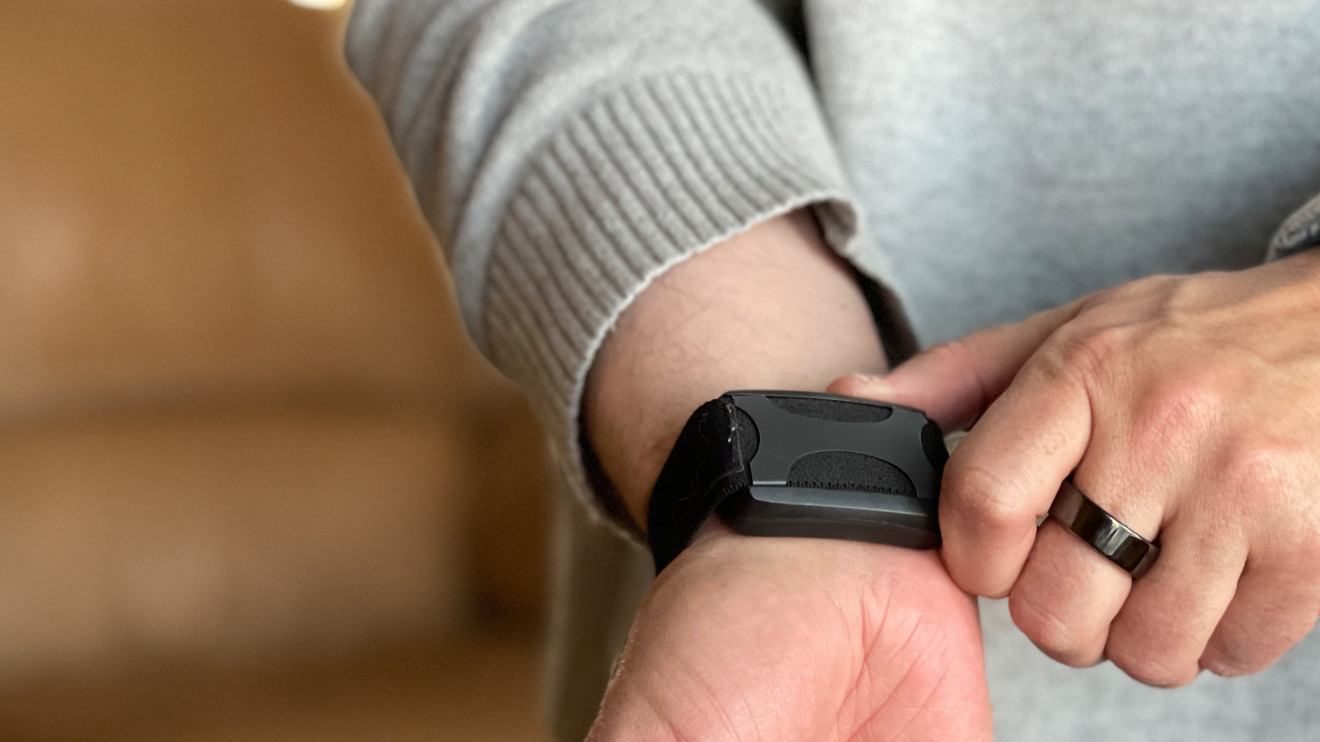
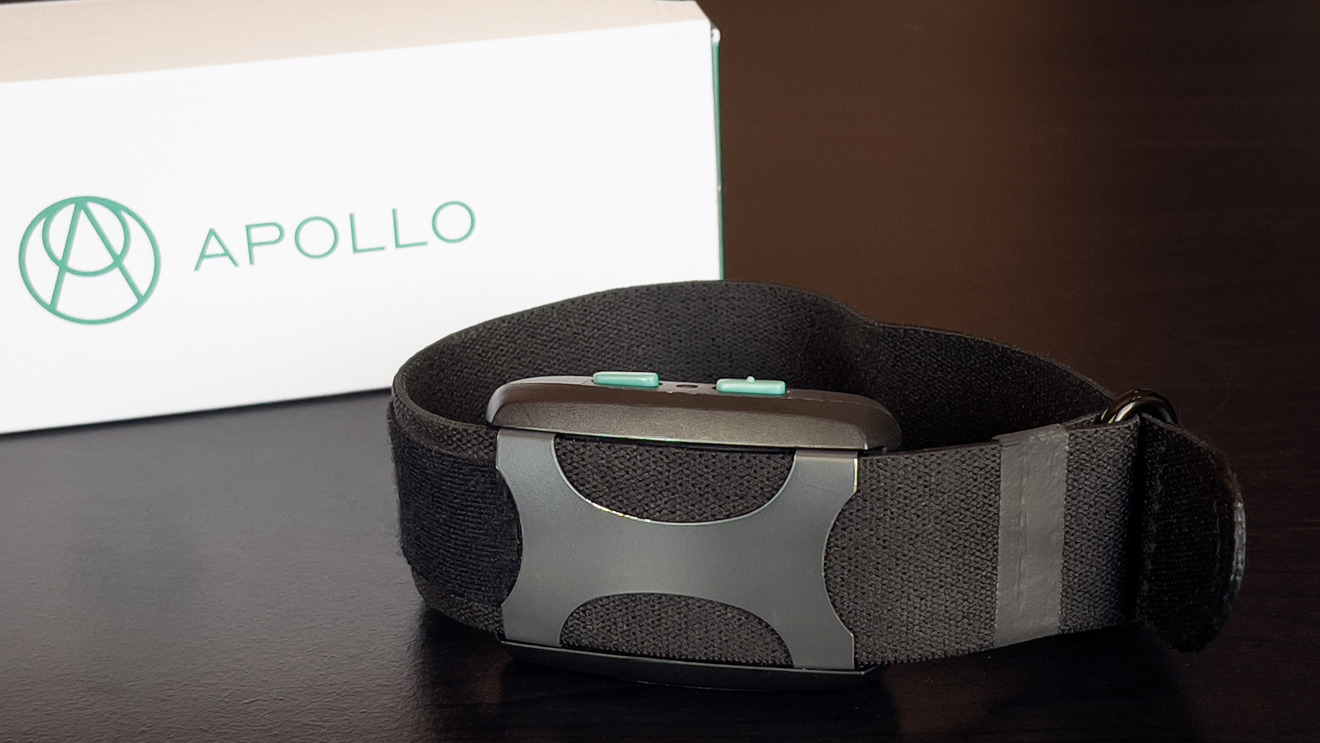
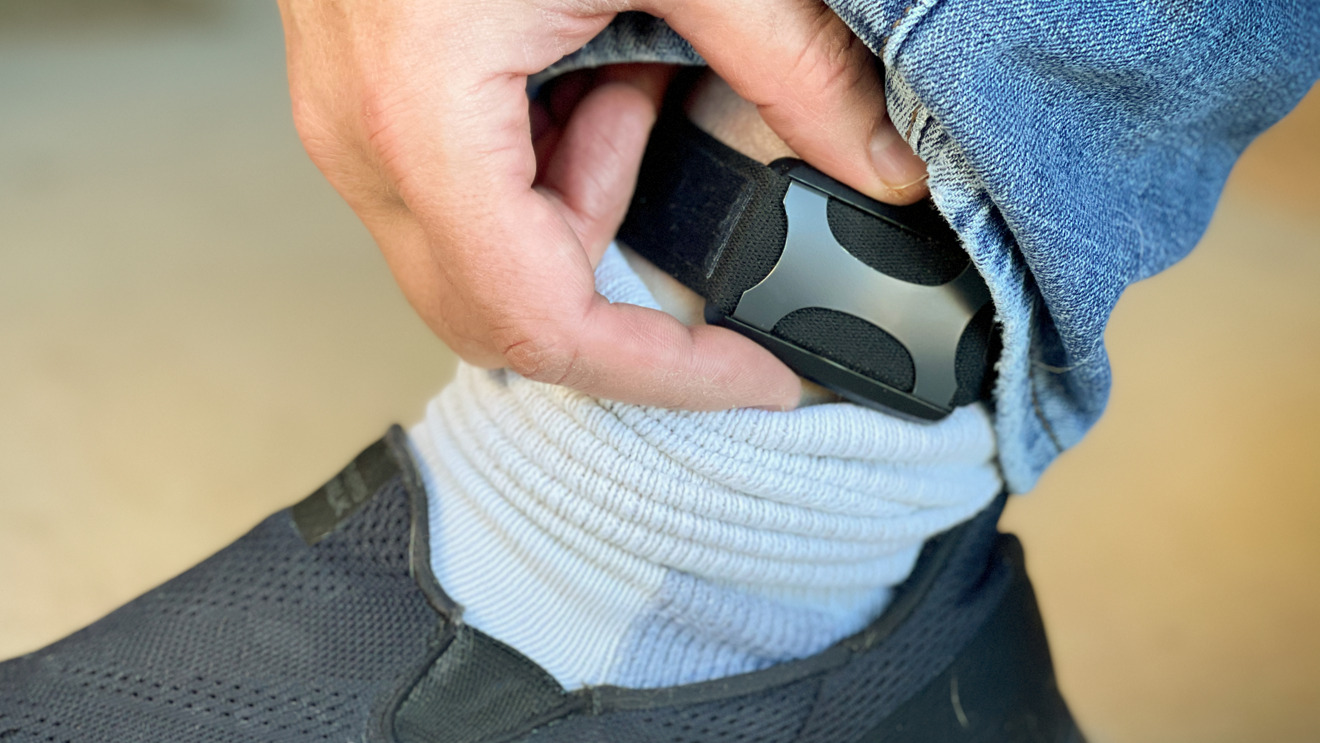
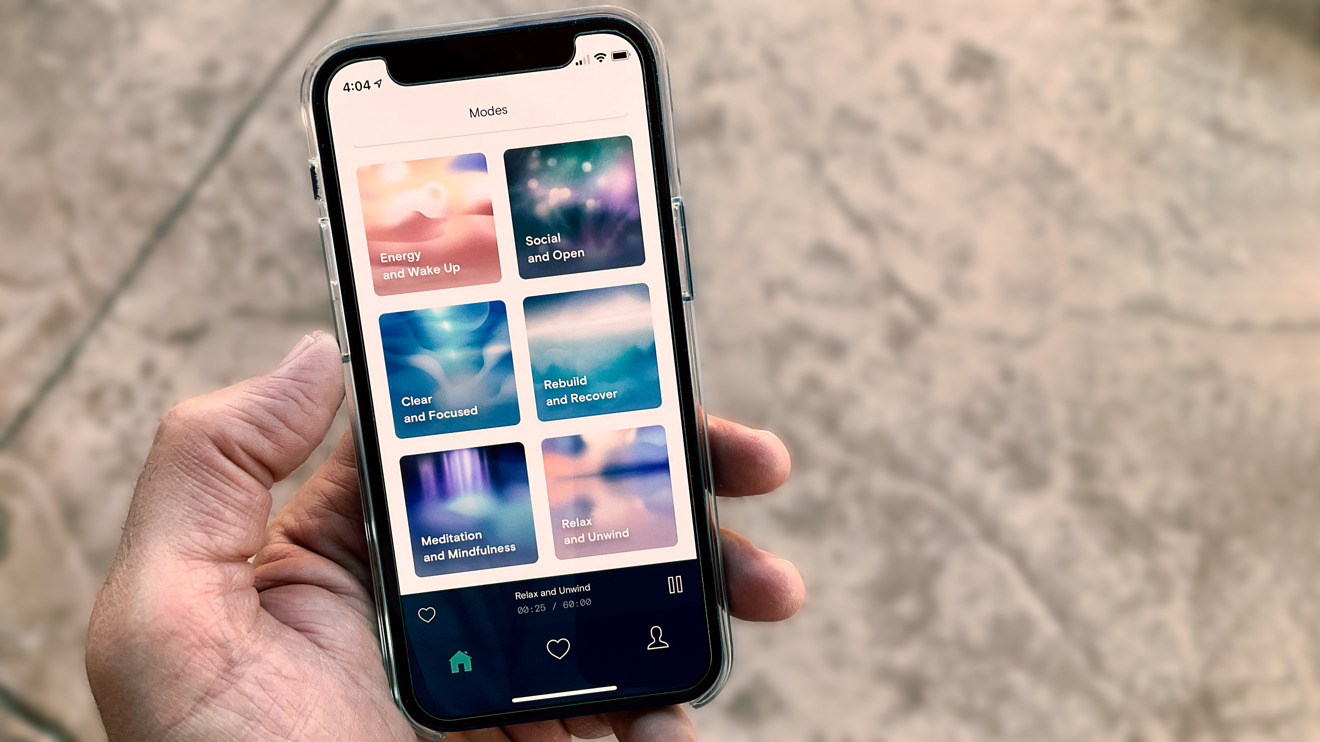
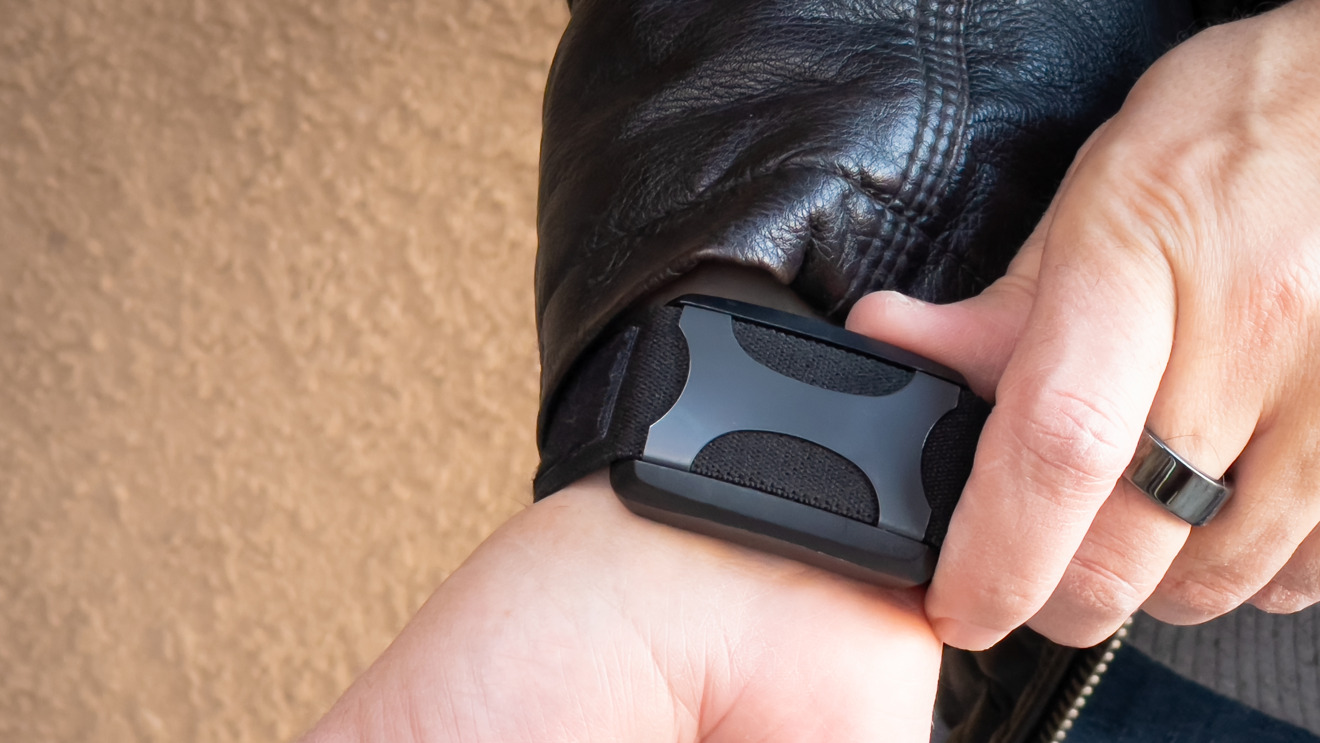
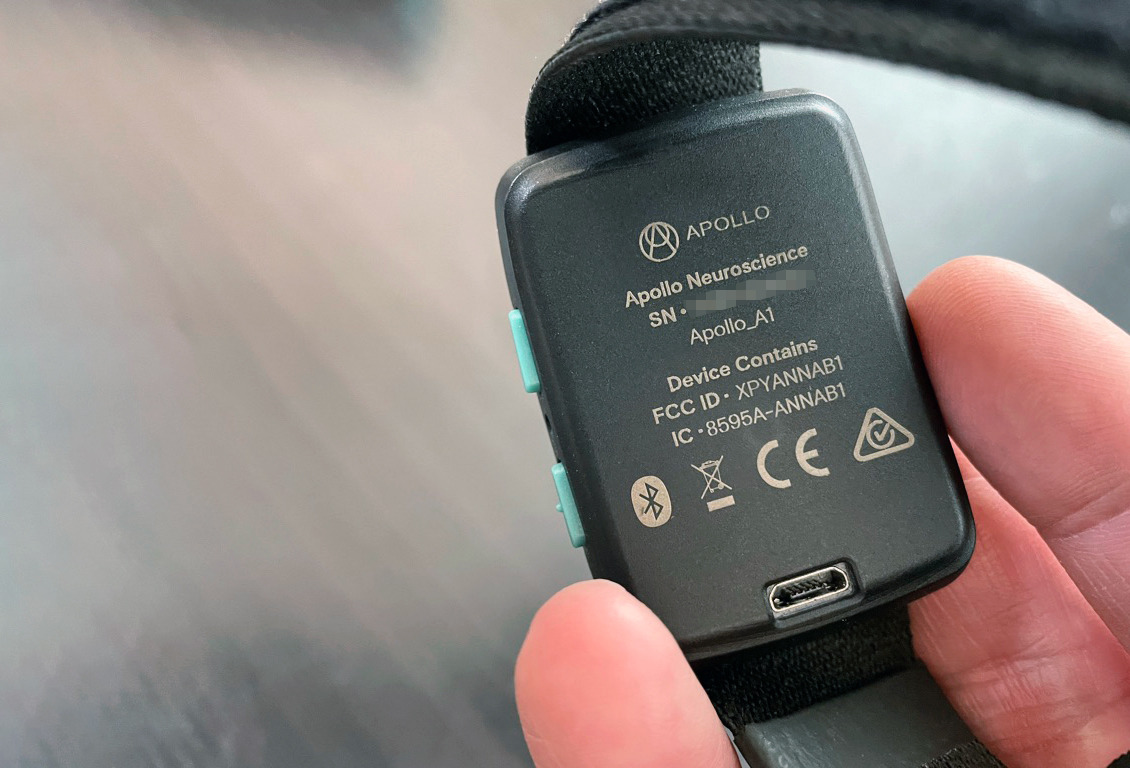
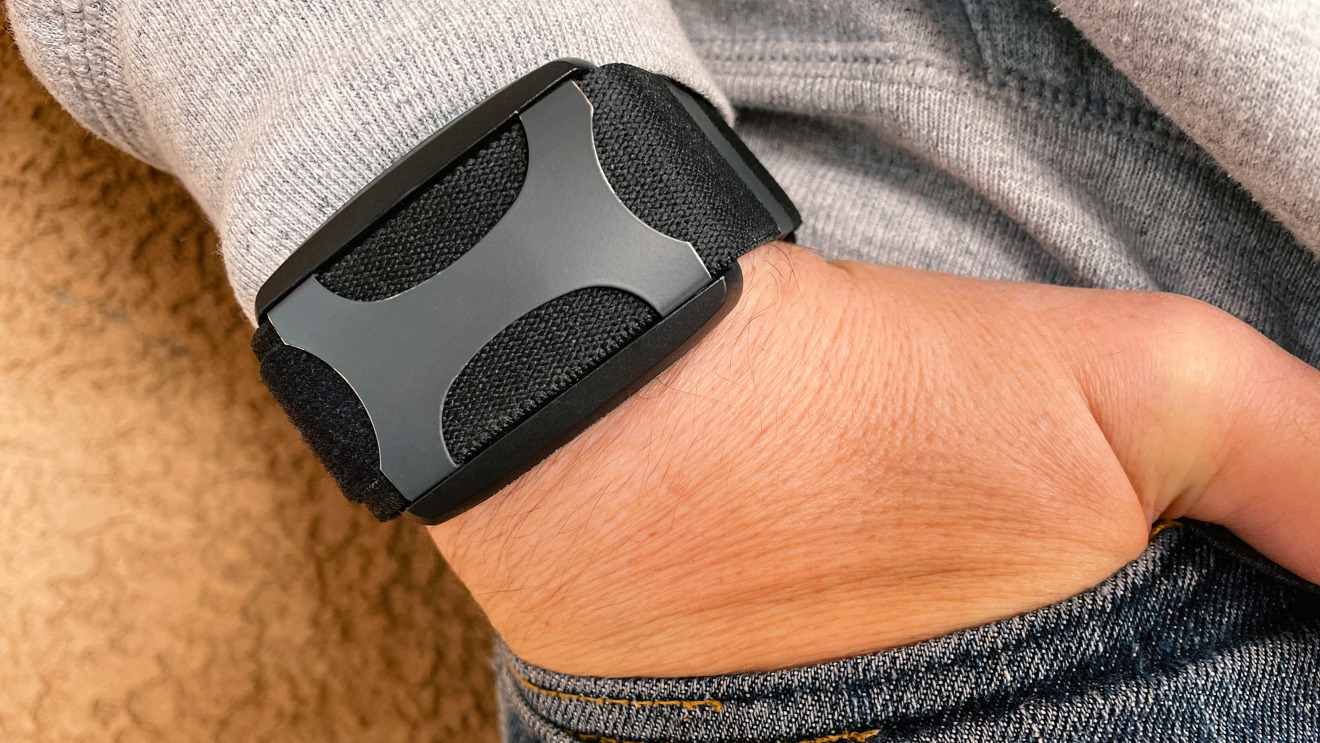














 Amber Neely
Amber Neely
 Thomas Sibilly
Thomas Sibilly
 AppleInsider Staff
AppleInsider Staff
 William Gallagher
William Gallagher
 Malcolm Owen
Malcolm Owen
 Christine McKee
Christine McKee










8 Comments
Didn’t read the article super carefully, but it seems to claim that it’s haptic effects were between cheap and Apple. If that is the case, wouldn’t this be an area ripe for an app rather than an EXPENSIVE stand alone device?
I mean, even if you had to charge twice a day, it might be worth it...
Tsk, tsk, tsk...
A mood ring is only $12.
https://www.amazon.com/Hicarer-Adjustable-Changing-Halloween-Birthday/dp/B07WZCZ7X5
Bandai should combine this with a tamagotchi. It’d be a hit. Like a digital support animal.